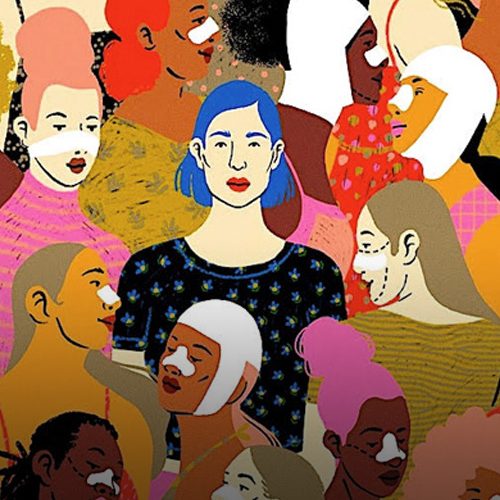IT’S IN THE EYE OF THE BEHOLDER –
June 2, 2022 – “We have an epidemic of body image anxiety,” Professor Widdows says. “We have to move away from that.” “We need to start taking it seriously.” Joseph Taylor, 36, says he grew up hating his “stereotypical [ethnic] big nose”. He’s since had three nose jobs, the first when he was 17. Schoolyard teasing played a part in his decision. “Kids can be horrible,” he says.
“Someone probably said something like, ‘Oh, you big nose’.
“It must have, at some point, really got to me.”
“When we’re young, we’re constantly trying to be the best that we can be on the exterior because we feel that’s all that matters … and we’re so impressionable,” Mr Taylor says.
But it’s not only in our youth that we are susceptible to this influence.
For young people and adults alike, beauty has become “our primary obsession”, Professor Widdows argues.
She’s not out to criticise beauty rituals. After all, as she notes, “we are embodied beings; we live in our bodies. It’s how we see other people, how we relate to them”. And plenty of beauty practices are enjoyable.
Mr Taylor, for example, says today he is happy and confident with his appearance, and he feels in control of the influence of beauty in his life.
“I’ve definitely grown to like the way I am,” he says.
It’s when beauty ideals tip into an obsession that problems can arise.
For example, when not weighing what you’d like ruins your day. When getting one selfie right takes hours of preparation and editing before posting. Or when not being happy with the way you look might even stop you leaving the house.
These, Professor Widdows says, are things she’s observed in researching her latest book, Perfect Me: Beauty as an Ethical Ideal.
She believes they signal a “very profound shift” in values.
“We’ve gone from beauty being one thing we care about to it being almost defining of who we are,” she says.



